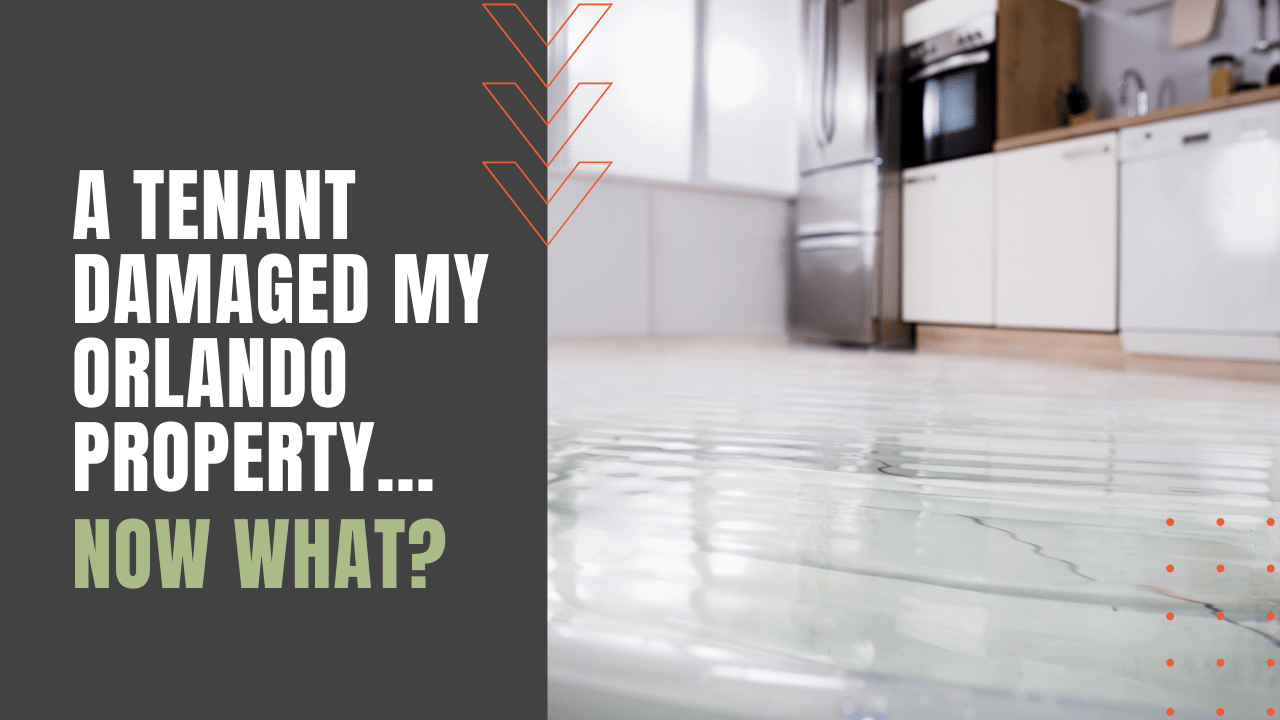
Tenant damage is one of the most common fears that Orlando rental property owners have. You’re worried about your investment and about the cost of repairing anything that goes beyond the expected wear and tear during and after a tenancy.
The best way to avoid tenant damage is with prevention. We’ll talk about that later in this blog. But first, you’ll need to know what to do if you discover excessive tenant damage.
Conduct an Inspection and Document the Damage
Get into your rental property within 24 or 48 hours of your tenant vacating. You don’t want to put it off because if there is damage, you’ll need to take action immediately.
Inspect the home thoroughly and document all the damage you find. You’ll need pictures, notes, videos, and a copy of your move-in inspection so you can compare the condition then to the condition now.
Make Repairs Quickly to Re-Rent the Property
Repairing the damage quickly is important for two reasons.
- First, it allows you to get an accurate understanding of how much damage was actually done. You don’t want to estimate what the tenant owes you when you’re making a claim against the security deposit. You’ll want to have receipts and invoices that you can use to demonstrate what is owed to you. The sooner you get your vendors and contractors in to take care of the damage, the sooner you can let your tenant know you’ll be keeping that security deposit.
- Second, it allows you to get your property back on the market immediately. Damage to your rental property can take a toll emotionally. It’s terrible to see how little the previous tenant cared for or respected your property. Don’t let this keep you from renting it out to a better tenant. Make the repairs and return it to rent-ready condition so you can start earning rental income again.
Make a Claim Against the Security Deposit
The security deposit you collected before your tenant moved in is held for exactly this purpose. After the work has been done and the cost has been tallied, you can let your tenants know that you’re keeping all or most of the security deposit.
In Florida, when you’re making deductions from the security deposit, you need to let your tenant know within 30 days of move-out. Then, you’ll have to return any remaining deposit money within another 30 days. Make sure you send a detailed accounting and itemized list of deductions.
When your tenant owes you more than what the security deposit covered, you can send a demand for payment. Every now and then, a tenant will pay. But, it’s not guaranteed. You can continue to try to collect that money with phone calls, letters, and even a debt collector, attorney, and a court judgment. Unfortunately, it’s very hard to get any money from former tenants when their damage exceeds the amount of their security deposit.
Preventing Tenant Damage: Screening and Inspections
 Protect yourself and your property by doing everything you can to avoid this type of tenant damage. Rigorous screening practices are a good start. Check every applicant’s credit for money that’s owed to former landlords or apartment communities. Talk to former rental references.
Protect yourself and your property by doing everything you can to avoid this type of tenant damage. Rigorous screening practices are a good start. Check every applicant’s credit for money that’s owed to former landlords or apartment communities. Talk to former rental references.
Collect a security deposit that’s at least equal to one month’s rent. In Florida, there’s no limit to what you can collect. You don’t want to chase away good tenants by asking for larger-than-normal deposits, but you do want to protect yourself from this type of damage.
Finally, inspect at least once a year. Get inside the property to look for deferred maintenance, unreported repair issues, and obvious tenant damage. This will deliver peace of mind and put you in contact with your tenant to evaluate how well he or she is maintaining your home.
Working with professional Orlando property management can also protect your property and prevent damage. If you’d like to hear more, please contact us at Park Avenue Property Management.